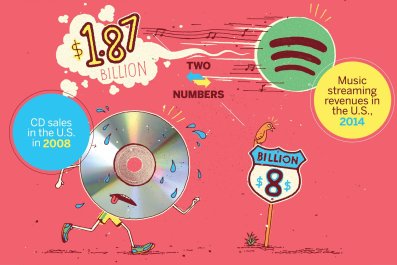American high school seniors logging on to university websites to find out which colleges have admitted them will soon confront a challenge they barely know exists: the art and craft of writing coherent papers (and, soon, internship applications, job cover letters and memos) that display not just good grammar and clean syntax but also structured thought.
The verbal diarrhea that is most prose today afflicts not just graduates of underachieving high schools that are deemphasizing writing in favor of the math and science skills now deemed their top educational priority. Bad writing also besets the best and the brightest, ironically lending a democratic quality to what now may be the greatest academic and professional challenge in this country. "Even among educated people, formal writing is not what it used to be," says John McWhorter, a linguist at Columbia University.
At Harvard, a frequently used "writing center" pairs tutors with undergraduates, usually freshmen panicked about their lousy prose. Princeton freshmen are required to attend a writing seminar twice a week. Clients of Grammarly, a popular, online grammar-checking program, range from San Diego State University to the web-only Phoenix University.
WGAF? The evidence, while anecdotal, is persuasive: A well-structured memo to your boss or colleague, whether at a Wall Street bank, in Silicon Valley or at your local retail chain, reveals your alpha-dog factor without pissing people off. "People are writing more than ever, but it's not well done, and those who can do it well have a tremendous advantage," says Mike Rose, a research professor who focuses on writing at UCLA.
The explosion of email, tweets and texting, with their patois and haiku-style snippets, has eroded what for centuries was a clear distinction between the written and the spoken. Layer in PowerPoint slides, where concepts are pauperized to bullets, and TED Talks, where potentially rigorous ideas can meander like a latte-fueled conversation at Starbucks, and the import of your idea can get lost—if it was ever there at all. "We see a lot of students using language in ways that are patterns of speech, but in writing you have to be more explicit," says James Herron, director of the Harvard Writing Project.
That means making your main points clear, early on. Had NASA engineers and managers not buried inside reams of pre-launch reports a critical piece of information about a fatal flaw in the O-rings in the Challenger space shuttle, they likely would have prevented the craft from taking off in 1986, before it exploded and incinerated all seven astronauts on board.
"People are caught up in a focus on STEM"—science, technology, engineering and math—"but the piece they don't understand is that all of those fields rely on clear, good writing, and we're not getting that," says Elyse Eidman-Aadahl, executive director of the National Writing Project, a nonprofit think tank at the University of California, Berkeley.
So here's an idea for a fresh meme: #GoodWritingIsSexy.
An earlier version of this article incorrectly defined STEM, which stands for science, technology, engineering and math.




























